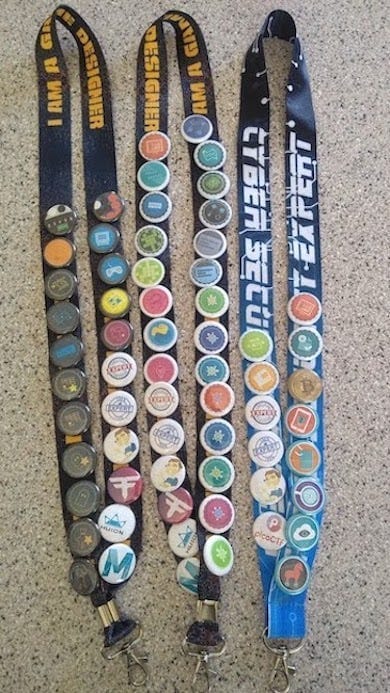Tangible Rewards to Keep Virtual Learners Motivated
Tangible Rewards to Keep Virtual Learners Motivated
Q&A with Melanie Honeycutt from Cabrillo High School

Meet Melanie, a Game Design and Simulations Pathway Instructor at Cabrillo High School who also doubles as a Business Technology and Entrepreneurial Economics Instructor. Melanie shares with us how she’s creatively keeping her students motivated with tangible rewards during a year of virtual learning. She also shares how she encourages her students to be experts in the classroom, which in turn facilitates opportunities for them to socialize with each other through peer-to-peer teaching and learning.
Q: Tell us about your background and teaching experience.
I have been teaching elementary-high school for 16 years. My subjects have focused on computers, math, and business classes mostly. I’m currently teaching Entrepreneurial Economics, Game Design 1 and 2 (in JavaScript and Python) and Business Technology (Cybersecurity and Physical Computing with Arduino).
Q: What is your school’s setup this year?
Currently classes are completely virtual, there was no plan for this and many things were very difficult to navigate. Going virtual meant finding completely new curriculum and initially working with students who did not have access to devices, Wi-Fi connections, microphones, headsets or cameras.
CodeHS allowed for many of these difficulties to be non-issues. With the resources that they offer, I was able to cover 3 of my 4 courses. This was a game changer. I find the passback with Google classroom, auto-grade, the personalized settings per student, ability to modify course work as needed, and the certificate exam options very valuable.
I don’t think I could maintain my teaching schedule and sanity without these CodeHS tools and resources.
However, more than any other valuable resource on the site, I value the customer service response most. I get quick responses, accurate details, and feel confident making suggestions or asking for new features. Responses are always professional, and resolve my issues quickly.
Q: How have your students adapted to learning this year?
A: Motivation was a huge factor. Students had no tangible reward for accomplishing their schoolwork. The gravity of their isolation was so immense that students would log in and sit off camera without attending to any of the work, session, or discussions. There was no drive for them to learn, no chance for them to interact with their peers, and being on camera meant they felt under a microscope.
My teaching philosophy is that I facilitate learning. I push students to be the expert, they then volunteer to help peers that need help. By doing so, they may earn one of the custom CodeHS badges I’ve created for being an expert, which they can earn multiple of. Students learn more by talking/teaching the material, so I’ve made this a big part of their success.

What’s become clear this year is that students needed motivation, what better than something tangible. All students leave my Game Design class with custom made lanyards with “I am a Game Designer” printed on them — the magic words of Jesse Schell, author of The Art of Game Design. Students in my Cybersecurity course get a lanyard as well, printed with “Cybersecurity Expert.” The custom expert and CodeHS course badges they earn are turned into 1 inch buttons that they can receive at the end of the course and put on their lanyard. These lanyards can be worn on campus and during graduation ceremonies to showcase their coding skills!
Q: What tips would you like to share with other teachers to lead a successful virtual classroom?
It’s okay for students to be the expert, we teachers don’t always have all the answers, and that’s not a bad thing. Encouraging students to be the experts and help out their peers provides them with more opportunities to socialize, especially now in a time where they may need that extra push to do so.
CodeHS Courses Melanie Teaches:
- Intro to Computer Science in Python 3
- Video Game Design
- Introduction to Cybersecurity (Vigenere)
- Introduction to Physical Computing with Arduino
View all CodeHS courses in the Course Catalog!